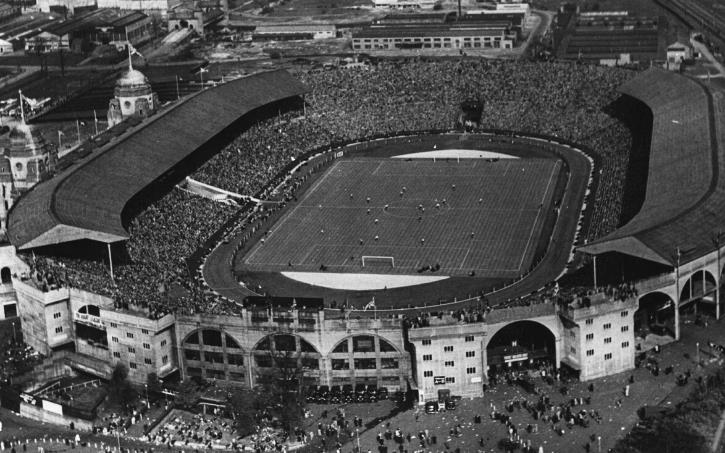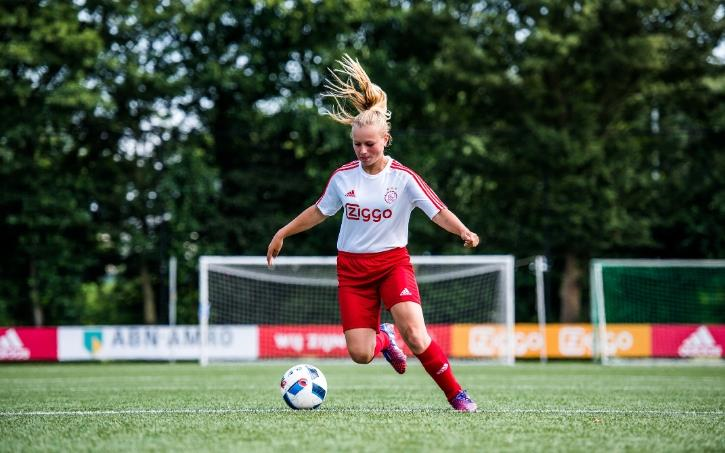Sadly though, for too many years women’s football has been overshadowed by the men’s game.
However, that wasn’t always the case. The history of women’s football starts earlier than you might think. In fact, in the early part of the 20 th century women’s games reportedly drew bigger crowds than most men’s matches.
And although the professional women’s game suffered a setback in the mid-20 th century and this affected the growth of the sport at grassroots level, f ans and footballers didn’t let that stop them.
Today, thanks to years of hard work, determination and proving the doubters wrong, the future of women’s football has never looked brighter.
Here’s a brief history of women’s football – or, as we like to call it, football.
1890s - Women’s football clubs start to appear
In the 1890s there were a number of women’s clubs in Britain. A match in North London reportedly drew a crowd of 10,000!
1920 - The first women’s international game
In 1920, 25,000 turned out to watch Dick, Kerr’s Ladies F.C. beat a team from Paris.

1920 - A record-breaking crowd
On 26 th December 1920, 53,000 fans turned out to watch Dick, Kerr’s Ladies F.C. thrash St. Helen’s Ladies.

1921 - A setback for the women’s game
In 1921 the FA declared, “The game of football is quite unsuitable for females and ought not to be encouraged”. Women are then banned from playing on Football League grounds. This decision greatly stunted the progression of the sport.
1969 - The Women’s Football Association is formed
The Women’s Football Association was formed with 44 member clubs.
1971 - The FA lifts its ban
50 years after the ban on women playing on Football League grounds, the FA reversed their decision.
1991 - The first WWC
China hosted the first FIFA Women’s World Cup, 61 years after the first men’s World Cup.
1993 - About time!
After 130 years of supporting men’s football, the FA began supporting the women’s game.
1997- Big plans
In 1997 the FA outlined plans to develop the women’s game at all levels.
1998 - England get their first full-time coach
In 1998 former national player Hope Powell was appointed full-time coach of the women’s national side.
2002 - The most popular sport for women and girls
In 2002 the FA announced that football had become the top participation sport for girls and women in England.
2011 - The FA Women’s Super League is launched
On 13 th April 2011 the first of 56 Women’s Super League fixtures began with a game between Arsenal and Chelsea Ladies.
2012 - Team GB reach the quarter finals of the London Olympics
In 2012 the popularity of women’s football was accelerated by a series of wins on home turf.

2014 - Another record-breaking crowd
In 2014, England Women’s first game at the new Wembley Stadium attracted a crowd of 45,619!
2015 - England win bronze at the Women’s World Cup
The popularity of women’s football got another boost in 2015 as England returned home from Canada with bronze medals.
2019 - England win the SheBelieves Cup for the first time
In 2019, under Phil Neville, an undefeated England won the SheBelieves Cup.
2019 - England finish 4th in the FIFA Women’s World Cup
The BBC were praised for their commitment to televising every game of the FIFA Women’s World Cup. The 8th incarnation of the tournament continually broke viewing records. England narrowly missed out on bronze medals after losing to Sweden.
As the nominated country for Great Britain, finishing fourth still meant Team GB’s women’s team qualified to participate in the 2020 Tokyo Olympic Games.
The future looks bright
In 2020, the progression of women’s football looks set to continue. Barclays have invested a reported £18m as title sponsors of the 2019-20 FA Women’s Super League season. And the game will enjoy an international audience once again at the Olympic Games this summer.

As a sports tour provider, Halsbury Sport is getting more and more enquiries about girls’ football tours. With eight professional clubs, four pre-season training camp destinations, nine European destinations, three international youth tournaments to participate in and long-haul destinations including Brazil and Argentina, we’re proud to be playing a part in inspiring the next generation of footballers.
A Halsbury football tour will inspire your players to achieve their full potential by providing them with the opportunity to compete in a new environment, develop their technique, grow in confidence and appreciate the need to lead a healthy lifestyle.
Contact us today about organising an unforgettable tour.